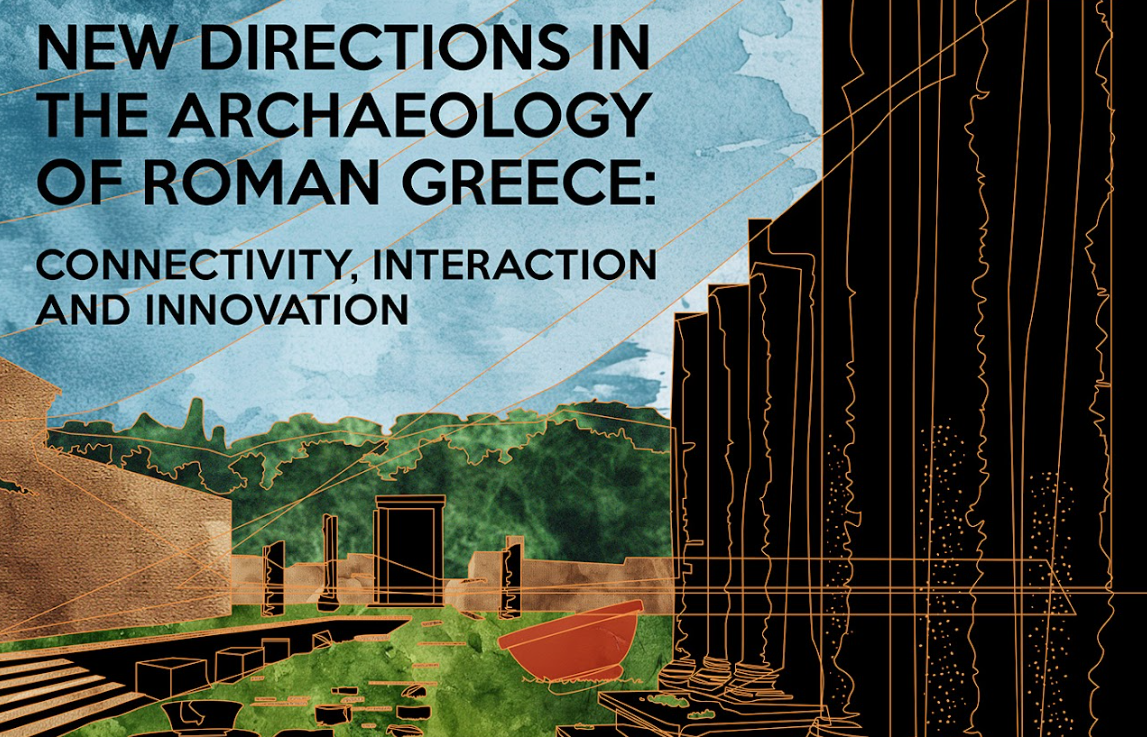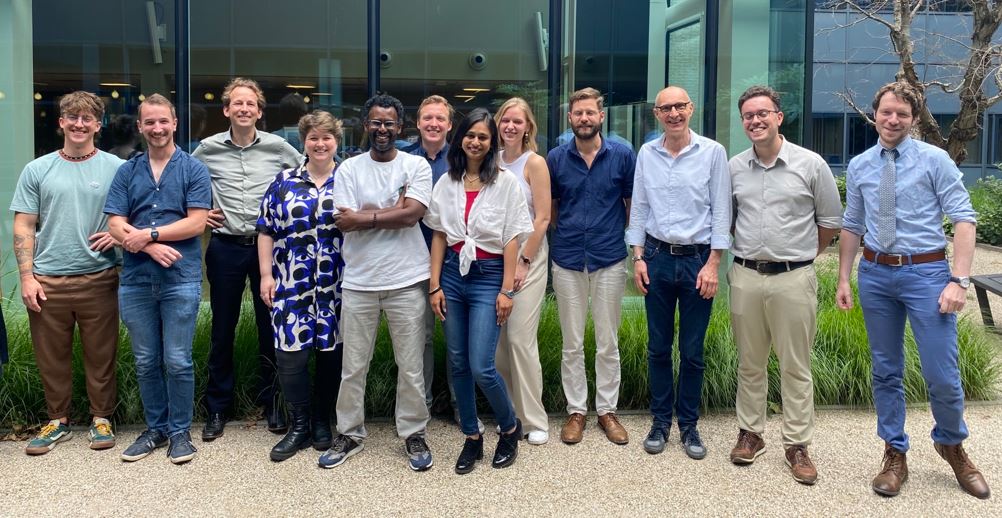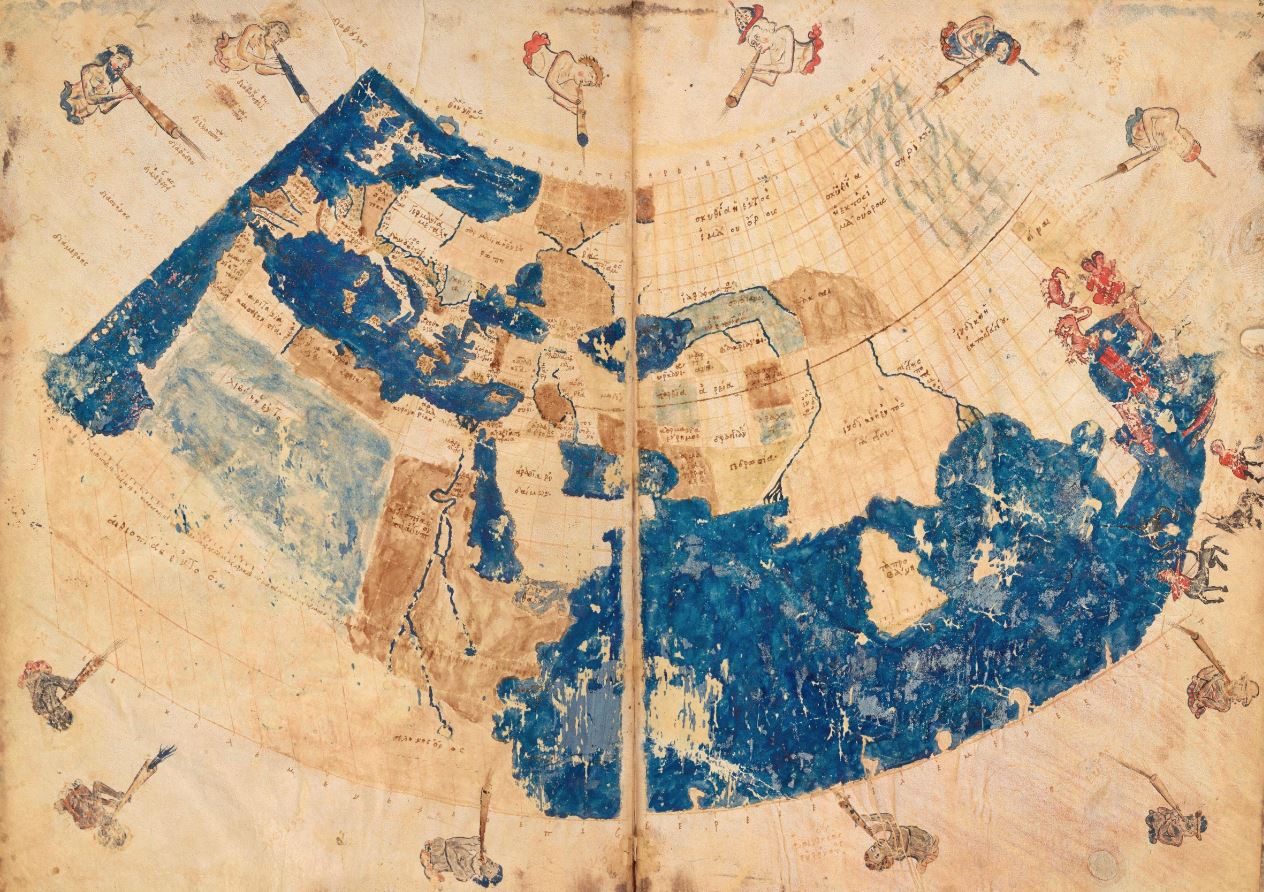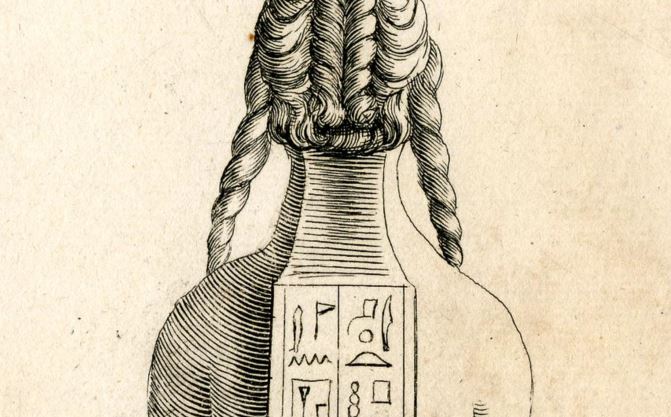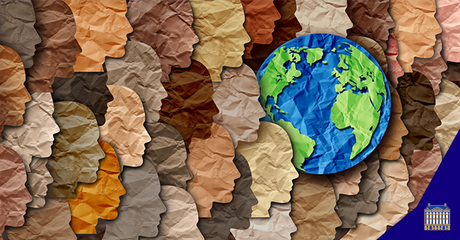Miguel John Versluys
- Name
- Prof. dr. M.J. Versluys
- ORCID iD
- 0000-0003-2290-4169

Miguel John Versluys is Professor of Classical & Mediterranean Archaeology at the Faculty of Archaeology.
More information about Miguel John Versluys
News
-
 4 KIEM grants for Humanities
4 KIEM grants for Humanities -
 Leiden researchers receive KIEM grant to explore materiality in ancient religions
Leiden researchers receive KIEM grant to explore materiality in ancient religions -
 Strengthening European research networks: Archaeologist Miguel John Versluys honored with prestigious Humboldt Research Award
Strengthening European research networks: Archaeologist Miguel John Versluys honored with prestigious Humboldt Research Award -
 Mink van IJzendoorn investigates the end of amphorae with a PhD in the Humanities grant
Mink van IJzendoorn investigates the end of amphorae with a PhD in the Humanities grant -
 Book presentation 'Coping with Versnel'
Book presentation 'Coping with Versnel' -
 Leiden2022: a science festival bursting with activities
Leiden2022: a science festival bursting with activities -
 Seven Leiden professors elected new members of KNAW
Seven Leiden professors elected new members of KNAW -
 A Manifesto for Investigating the Impacts of Object Flows on Past Societies: Objectscapes
A Manifesto for Investigating the Impacts of Object Flows on Past Societies: Objectscapes -
 The enduring impact of Egypt on Western culture
The enduring impact of Egypt on Western culture -
 ERC Creative Europe Culture grant for Alexandria: (re)activating common urban imaginaries
ERC Creative Europe Culture grant for Alexandria: (re)activating common urban imaginaries -
 Working from home with the Classical and Mediterranean archaeologists: ‘I should have been in Rome right now’
Working from home with the Classical and Mediterranean archaeologists: ‘I should have been in Rome right now’ -
 Professor Miguel John Versluys joins Supervisory Council of National Museum of Antiquities
Professor Miguel John Versluys joins Supervisory Council of National Museum of Antiquities -
 Leiden contributes to Getty Museum exhibition
Leiden contributes to Getty Museum exhibition -
 Still learning from the Ancient Greeks
Still learning from the Ancient Greeks -
 Seeing the Romans - and ourselves - in a different light
Seeing the Romans - and ourselves - in a different light -
 € 18.8 million grant for research into innovation processes in antiquity
€ 18.8 million grant for research into innovation processes in antiquity -
 Discover our Perspectives on the Past
Discover our Perspectives on the Past -
 New Professor for the Faculty of Archaeology at Leiden
New Professor for the Faculty of Archaeology at Leiden -
 Should we close our borders? Not according to the Classical World!
Should we close our borders? Not according to the Classical World! -
 VICI Award for Miguel John Versluys
VICI Award for Miguel John Versluys -
 Zenobia essay prize for Dr. Miguel John Versluys
Zenobia essay prize for Dr. Miguel John Versluys -
 2012 LGI Seed funding awarded to research project: Globalisation, materiality and the transference of cultures
2012 LGI Seed funding awarded to research project: Globalisation, materiality and the transference of cultures -
Vidi voor Miguel John Versluys
Current PhD candidates
The Roman empire and world history | Leiden, January 30, 2026
Materiality, Religion and the Senses | Leiden, December 11, 2025
Mainzer Vorträge zur Römischen Archäologie | Mainz, October 15, 2025
Cleveringa Lecture | Bratislava, November 20, 2024
Winkelmann Lecture | December 6, 2023
Office days
On appointment by mail.
Research
My research explores the cultural dynamics of the ancient world, the Hellenistic-Roman period (roughly 200 BCE – AD 200) in particular, from the point of view of Afro-Eurasia. I investigate these dynamic processes from local, regional and global perspectives and by means of a variety of methodologies and techniques derived from the Social Sciences & Humanities as well as the Natural Sciences.
Transdisciplinarity is key to my research in all respects. As Classical & Mediterranean archaeologist, I actively work together with (pre)historians, art historians, classicists, Egyptologists, Near Eastern scholars, anthropologists, sociologists and scientists (amongst others) as I believe that this approach is the only way to arrive at a better and comprehensive understanding of the big picture I am interested in.
In doing so, my research has two distinct focus points: the interconnection of cultures and their various identities (”Globalisation”), and the interdependence of objects and people (“Material Culture Studies”). These allow me to destabilize the canon and develop a very different history of antiquity than we are used to: decentered, multi-polar, networked, and not focused on human agency alone. My ambition is to rewrite the history of the ancient world from the perspective of increasing connectivity and developments that took place all over Afro-Eurasia - as a Global History of the ancient world - and to do so with a focus on objects and their many entanglements.
At present, the field of antiquity studies is going through a phase in which it rethinks its own character, presuppositions and genealogy. My research is at the very center of that important debate. The period between 200 BCE – AD 200 is pivotal for World History and many of the cultural dynamics that emerged at that time continue to define us up until the present day, for better or worse. My research actively engages with the presence of the past and the importance of deep history for present-day societies - and their future. To that end, I frequently work together with museums and other cultural institutions, artists and social entrepreneurs. Only by exploring alternative pasts, I believe, are we able to imagine different futures.
My research group, a team characterised by gender diversity and inclusion, I consider to be my major strength. My PhDs and PostDocs come from all over the world; and increasingly also from the global South. I finished a VICI project in 2023 and obtained a Mosaic 2.0 Grant in the same year. At present, I am amongst the PIs of a Gravity Grant program entitled Anchoring Innovation (2017-2027). I am an active member of the Academia Europaea (2017) and the Royal Netherlands Academy of Arts and Sciences (KNAW) (2021). I am currently also a member of the board of trustees of the Leibniz-Zentrum für Archäologie (Mainz) and the National Museum of Antiquities (Leiden) and actively engage with research (policy) and its societal impact.
Curriculum vitae
I have published 2 monographs, 16 edited volumes and almost 100 (refereed) articles and book chapters. I have successfully supervised 11 PhD dissertations. At present, my research group consists of 12 PhD students and Postdocs. I have organized many international conferences and workshops or conference sessions. For my research I have obtained 5m euros in research grants, amongst which a VIDI, VICI, Gravitation and Mosaic grant (NWO) as well as a Marie Curie and Creative Europe grant (ERC). I am one of the editors of the Brill series Religions in the Graeco-Roman World (RGRW).
Also see my full CV and my full bibliography.
- 2001 PhD Leiden University, Aegyptiaca Romana. Nilotic scenes and the Roman views of Egypt (cum laude).
- 2002-2004 Amsterdam Archaeological Centre, Postdoctoral research fellow & project manager of the International Nemrud Dağ Project
- 2005- Assistant Professor, Leiden University, Faculty of Archaeology
- 2011 Guest professor at the Université Toulouse – Le Mirail/Jean Jaurès (Toulouse)
- 2011-2015 NWO VIDI grant for the project Cultural innovation in a globalising society. Egypt in the Roman world & Associate Professor.
- 2014 Co-founder of the Leiden Material Agency Forum.
- 2015-2018 Director of the Leiden Graduate School of Archaeology
- 2016 Senior research fellow with the Excellence Cluster TOPOI (Berlin).
- 2016-2022 NWO VICI grant for the project Innovating objects. The impact of global connections and the formation of the Roman Empire (ca. 200-30 BC)
- 2016 Full Professor and Chair of Classical & Mediterranean Archaeology, Faculty of Archaeology, Leiden University
- 2017-2027 GRAVITATION grant for the program Anchoring Innovation (as one of the six main coordinators).
- 2017 Elected as member of the Academia Europaea
- 2018 Scholar in residence at the Getty Research Institute (Los Angeles).
- 2020-2024 ERC Creative Europe grant for the program Alexandria: (re)activating common urban imaginaries
- 2021: Elected as member of the Royal Netherlands Academy of Arts and Sciences (KNAW)
- 2022: Guest professor at the Müncher Zentrum für Antike Welten (Ludwig Maximilians-Universität München)
Research interests, development and output
I obtained my PhD degree from Leiden University in 2001 for a study of images of Egypt in Roman visual material culture and, in broader terms, the meaning of Aegyptiaca Romana. To further explore how “Egypt” and “Rome” constituted dialectical history, I organised, together with Laurent Bricault (Toulouse), a series of conferences on the (global) goddess Isis between 2005 and 2011. This has resulted in four edited book volumes that explore the entanglement of the local and the global with regard to the Egyptian gods from a wide variety of perspectives. Simultaneously, extensive fieldwork in Commagene (south-east Anatolia) broadened my range beyond the Nile and Tiber – and subsequently led me to rethink what cultural interaction in Antiquity was about by taking the perspective of a ‘borderland’ at the Euphrates. This resulted first in an exploration of Globalisation theory to better understand the connectivity that characterised the Hellenistic-Roman era (Globalisation and the Roman world. World history, connectivity and material culture, with Martin Pitts) and, subsequently, in The Routledge Handbook of Archaeology and Globalization, which encompasses a worldwide scope throughout time. Together with others I also investigated the consequences of living in a world characterised by increasing interconnections as well as our conceptual apparatus for understanding such a context. For instance, we critically evaluated and applied the concept of “The invention of tradition” to Roman Europe and the Mediterranean. Making a similar conceptual shift from culture to concept, a 2017 volume argues for the crucial importance of the notion of Persianism, as parallel to Hellenism, in order to understand the cultural dynamics of Hellenistic and Roman Eurasia beyond “East’ (versus) “West” containers.
Things have become increasingly central to these investigations. Specifically, the concept of things shows that objects intrinsically consist of (culturally) multi-layered know-how and meaning and that they affect humans and human society because of this. For that reason, I have come to place both Globalisation and Material Culture Studies (“beyond representation”) at the heart of my intellectual agenda for a multi-polar, uncentered history of the ancient world. My 2017 monograph on Nemrud Dağ and Commagene under Antiochos I, entitled Visual style and constructing identity in the Hellenistic world, applies this approach in-depth to a remarkable archaeological case study.
To explore and evaluate “the material turn” within the SSH, I co-founded the Leiden Material Agency Forum together with colleagues from Art History and Anthropology in 2014. The 2020 volume Beyond Egyptomania is one of the outcomes of this transdisciplinary cooperation, in which the transmission of the idea of Egypt throughout time is studied from the perspective of material agency. Our 2018 volume on the Iseum Campense in Rome (Temple, monument, Lieu de mémoire) equally investigated how past and present are bridged by the historical layeredness of objects. Both studies, moreover, illustrate how Egypt has always been part of Europe and its cultural imagination; adjusting the canon of reception history.
My current projects build on my previous (fieldwork) experiences in (present-day) Italy, Turkey and Egypt and combine my two research focus points - the interconnection of cultures and identities, and the interdependence of objects and people – approached through the concept of innovation. I have developed the concept of Objectscapes as a methodology to do so. Recent output includes two books with conference proceedings on respectively Commagene and Alexandria as important global hotspots of Hellenistic-Roman-era Afro-Eurasia. From that perspective, I am particularly interested in the impact of Globalisation on people and their worldviews; a topic that strongly speaks to present-day concerns as well. In 2022 I published a volume on canonization as a form of anchoring innovation in ancient Afro-Eurasia; whereby canonization is understood as a form of embedding global diversity. A 2024 volume on appropriation and cultural change explores how ‘objects-in-motion’ are able to impact people and society in this respect. This research paved the way for a major book-project (contracted by CUP and to be published in 2025) entitled A global revolution? Objects and change in Afro-Eurasia in the final centuries BCE. With over 20 case-study Chapters ranging from the Atlantic to the Chinese Sea, this volume investigates, in a comparative way, the consequences of increasing connectivity in the final centuries BCE on an Afro-Eurasian scale. Also to be published in 2025 (contracted by Routledge) is a co-authored volume on the Maurya dynasty and developments in India from this perspective of a ‘global Antiquity’ as well as a monograph that will provide a new history of the beginnings of the Roman Empire from the perspectives of Globalisation and human-thing entanglement, entitled Innovating Objects. Global Rome and the making of Empire (250 BCE – 14 CE).
In recent years, fuelled by my participation in an ERC Creative Europe project, amongst others, I am increasingly using my research on the ancient world as an instrument to interrogate our present and possible future. Only by exploring alternative pasts, I believe, are we able to imagine different futures. Important research output in that domain includes a Chapter in the Handbook on Frugal innovation as well as the 2024 volumes Rooted Cosmopolitanism, Heritage and the question of belonging. Archaeological and anthropological perspectives and Finding the future in the past. Object orientations between innovation and anticipation.
Learn more about the research fascination of Miguel John Versluys through this interview (in Dutch).
- Lid en vice-voorzitter Raad van Toezicht
- Lid and vice voorzitter Wissenschaftlicher Beirat












